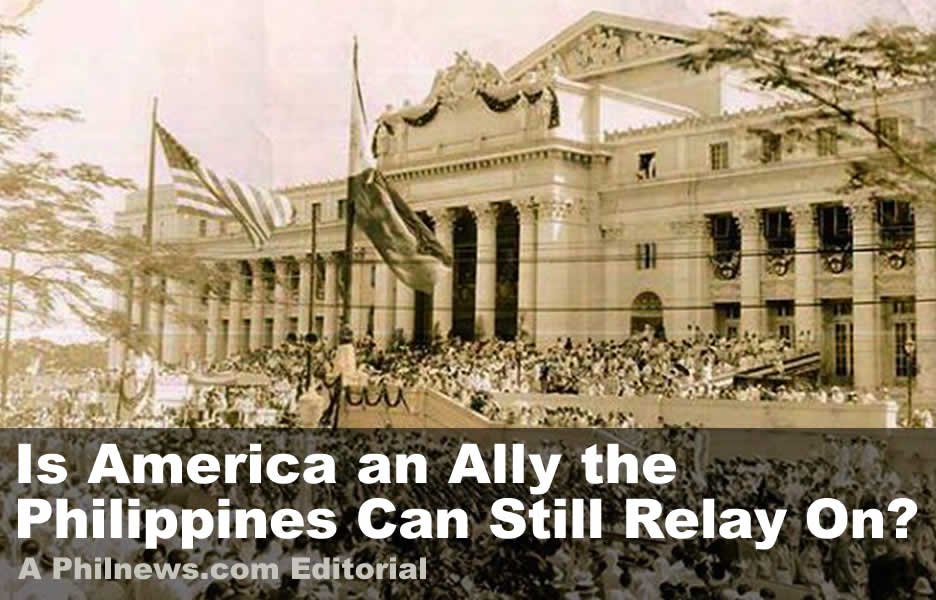 November 15, 1935, Thousands of jubilant Filipinos flock to the Legislative Building (now the National Museum) to witness the birth of the Philippine Commonwealth as President Quezon and Vice President Osmeña take their respective oaths of office. Photo: Phil Gov't archives
November 15, 1935, Thousands of jubilant Filipinos flock to the Legislative Building (now the National Museum) to witness the birth of the Philippine Commonwealth as President Quezon and Vice President Osmeña take their respective oaths of office. Photo: Phil Gov't archives

here used to be a time in the not too long ago when the Philippines and the United States appeared to be attached at the hip. The archipelago became a possession of the United States after Commodore George Dewey defeated the dilapidated Spanish Armada in the Battle of Manila Bay in 1898.
Despite a short-lived insurrection, Filipino rebels resigned themselves to the fact that America was too powerful a foe to defeat. The rest of the country likewise realized there were a lot more pluses than minuses to being part of a rising global power. And Americans, for their part, were generally friendlier, more outgoing, and having been colonized themselves, they treated Filipinos far better than the Spaniards did.
The bond between Filipinos and Americans grew in strength during World War II. That was a time when both Filipinos and Americans endured indescribable suffering at the hands of the Imperial Japanese forces.
They, however, fought bravely and persevered. Filipinos and Americans formed guerilla units and stymied the Japanese military at every turn. Guerilla activity in the Philippines and elsewhere in the Pacific helped change the tide of war. The once invincible Japanese military juggernaut no longer appeared unstoppable. American and Filipino guerillas formed a common bond, forged in the hellish fires of the Pacific war.
But like all bonds and relationships, unless regularly nurtured, they weaken, grow brittle, and eventually vanish. The millions of Filipino and American guerillas who fought the Japanese are nearly all deceased now. Even the heavy-hitting power brokers in the U.S. like Douglas MacArthur, Ike Eisenhower, Woodrow Wilson, Theodore, and Franklin Roosevelt, to name but a few, are no longer around to advocate for the Philippines.
Current American politicians know little about the Philippines, just as Filipinos today know little about America. Some Filipinos doubt their former ally will come to their aid. Meanwhile, Americans today ask why an archipelago in the South Pacific should be so important to them that they have to send their soldiers over to protect it.
Could Philippine President Rodrigo Duterte have it right after all? He does not seem to believe the U.S. will come to the aid of the Philippines—even though both countries have had a mutual defense treaty for over half a century now.
From Duterte’s perspective, Filipinos might as well get on the good side of the Chinese and the Russians. America, after all, is no longer the dependable ally it used to be. Many U.S. politicians would be unable to find the Philippines on a map anyway.
The saddest part of all this is the fact that liberal democracy—what America had helped promote—may be on its way out, while authoritarian regimes are on the rise. Whether we like it or not, the world our children and grandchildren will live in might be very different from the world we have today. Published 10/21/2019
|